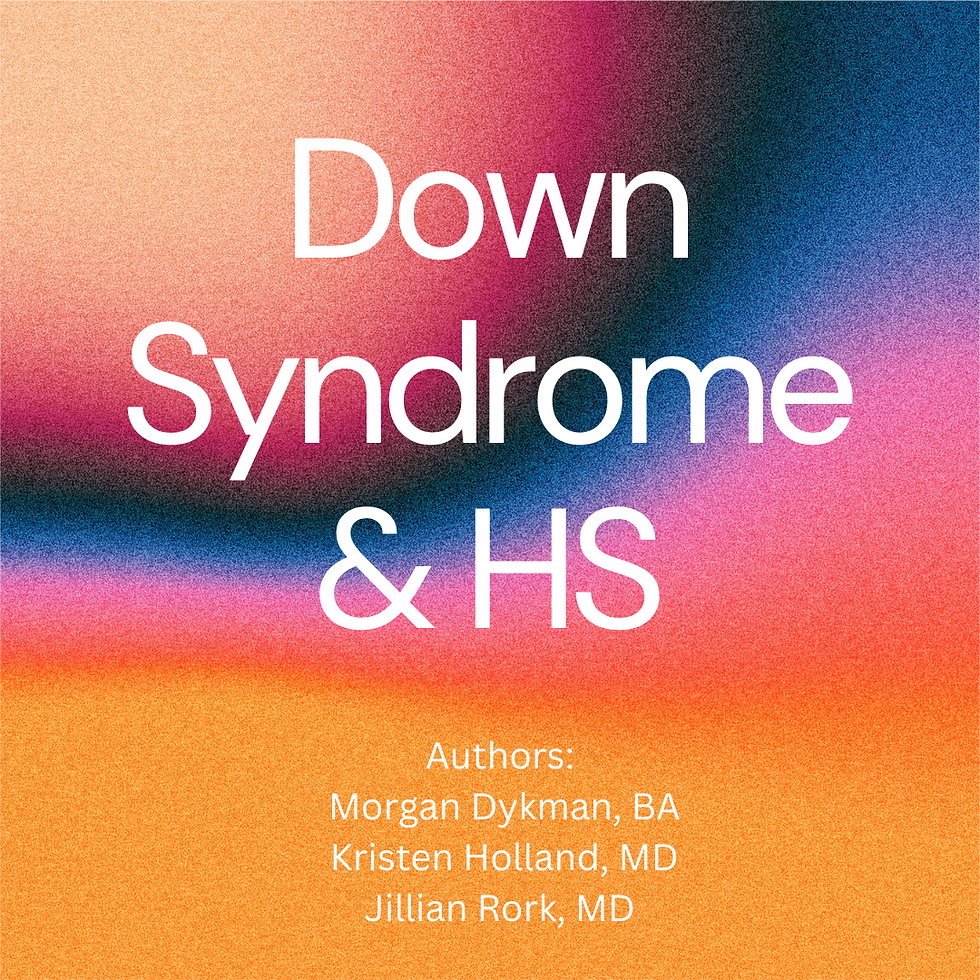Nightshades: Should they be Eliminated for HS?
- Denise Fixsen

- Jan 3, 2021
- 3 min read
Updated: Nov 24, 2021
Nightshades is the name for a group of fruits and vegetables that could be a trigger for some with HS. Common nightshades include:

Potatoes (not including sweet potatoes)
Tomatoes
Tomatillos
Eggplant
Bell peppers
Cayenne pepper and other hot peppers including:
chili peppers
jalapenos
habaneros
chili-based spices
red pepper
Paprika
Goji berries
Tobacco/Nicotine
Nightshades contain glycoalkaloids, their own natural "bug repellant". That protective mechanism can cause inflammation in some people while others don’t have any issues with them.
Different nightshades have different levels of glycoalkaloids. For example, unripe tomatoes have a high level, but as tomatoes ripen, the amount of glycoalkaloid decreases. At the point where they are ripe the plant actually wants bugs to come to it and help cross-pollinate.
There have not been any large-scale studies done on nightshades, however, some diets suggest that you exclude them, claiming that people feel better when they don’t eat them, but that doesn’t mean everyone should be cutting them out of their diet.
For most people there is no need to avoid nightshades and studies haven’t linked them to negative health consequences. These types of foods are incredibly healthy and offer more health benefits than drawbacks in most cases.
If you have inflammatory bowel syndrome, are gluten intolerant, or have inflammatory illnesses you may have issues with nightshades.
If you eat nightshades fairly regularly and experience bloating, diarrhea, nausea, vomiting, headaches, more HS flares or worsening of current HS flares, it may be worth cutting them out to see if you notice a difference.
Cutting Out Nightshades
Just like anything, if you find it is a personal trigger for your HS or you think you have a sensitivity to nightshades you may want to try cutting them out for a few weeks while keeping an eye on your symptoms as well as documenting in a food journal. In addition, you could look into a food sensitivity test for tolerance.
Some people can cut out tomatoes and potatoes, but still tolerate peppers, because they have lower levels of glycoalkaloids. Nightshades also have a cumulative effect, meaning there may not be one particular variety that bothers you, instead, consuming small portions of a few different nightshades may be too much for your body to tolerate on any given day.
Because all nightshades are different it is recommended that you take notes to see if your body feels different when you add certain ones back in, you might find that simply moderating your nightshade intake is enough.
If you choose to eliminate them, it’s important to make sure you’re still getting the important antioxidants and vitamins from other sources.
If you choose to cut out nightshades, prepare for some trial and error. The easiest way to find out if you can tolerate one or any is just eliminate them altogether, at least for a while, and then slowly add them back in one at a time; this will allow you to see what your body tolerates.
Additional information on HS and Diets here.
Nutrition, Elimination Diets and HS here.
The Best and Worst Fad Diets for HS here.
Intermittent Fasting for HS here.
Content in this article is not intended to be a substitute for professional medical advice, diagnosis, or treatment. Always seek the advice of your physician or other qualified health provider with any questions you may have regarding a medical condition. Never disregard professional medical advice or delay seeking treatment because of something you have read on this website.
Written by Denise Panter-Fixsen
Edited by Brindley Kons



